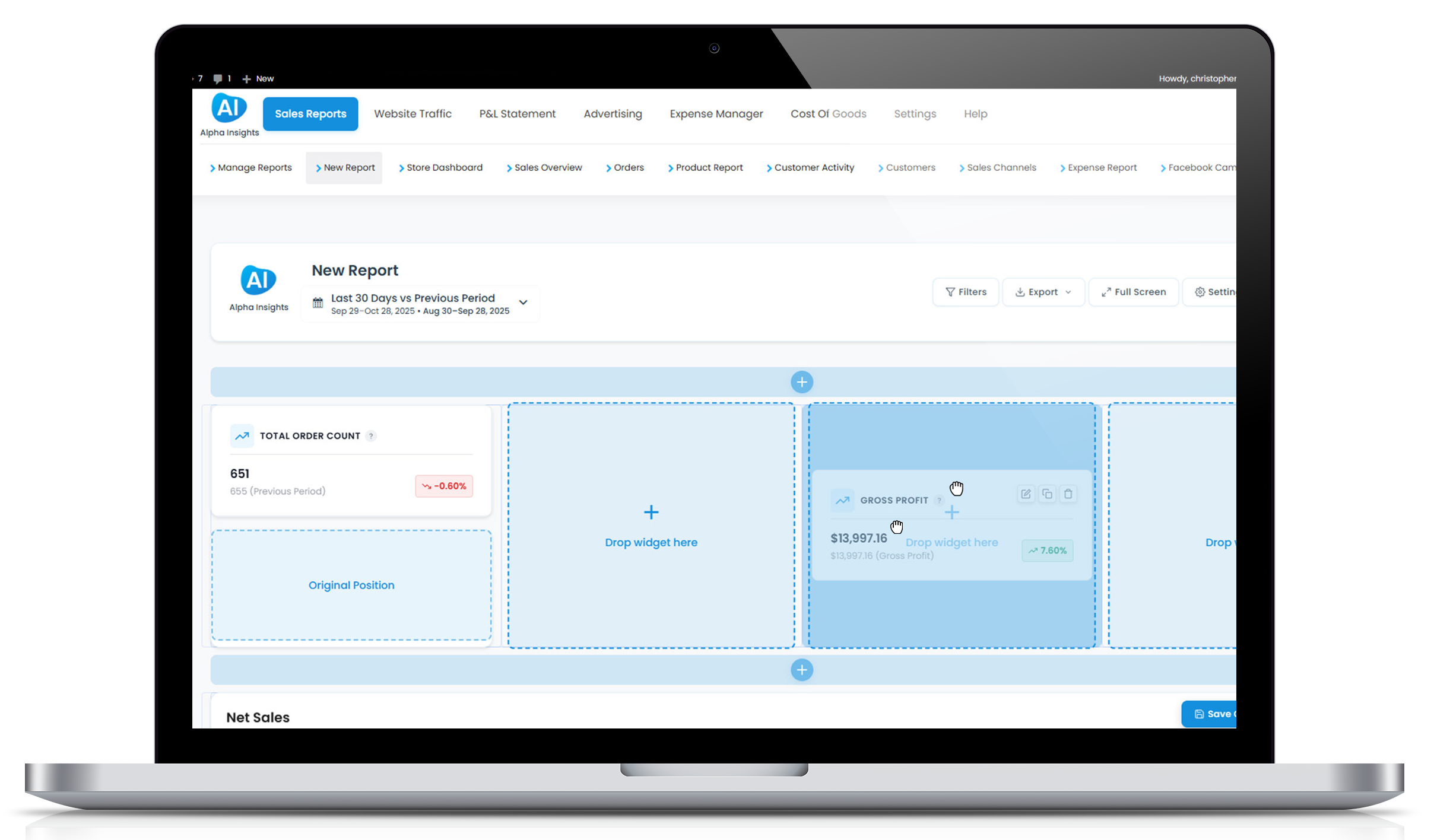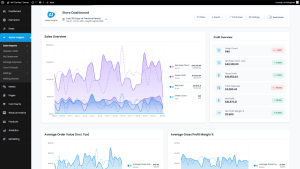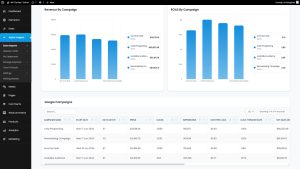How to Use Customer Segmentation to Increase Profits in WooCommerce
Not all customers are the same. Some make repeat purchases every month, while others vanish after their first order. Some are price-conscious deal hunters, while others will pay extra for premium options.
So why would you market to all of them the same way?
The secret to maximizing WooCommerce profits lies in customer segmentation—the process of categorizing your store’s shoppers into different groups and tailoring your marketing, pricing, and offers to each segment.
In this guide, we’ll walk you through how to segment your WooCommerce customers effectively, how to use data to refine your strategies, and how tools like Alpha Insights can help boost profitability.
What Is Customer Segmentation?
Customer segmentation is the practice of dividing your audience into groups based on shared characteristics, such as shopping behavior, demographics, or spending habits.
Instead of treating every customer the same, segmentation allows you to:
- Target the right products to the right customers.
- Personalize email campaigns for better conversions.
- Adjust pricing strategies based on customer types.
- Improve customer retention with tailored offers.
The result? Higher customer loyalty, better conversion rates, and a more profitable WooCommerce store.
Four Powerful Ways to Segment Your WooCommerce Customers
There are many ways to segment your customers, but let’s focus on the ones that drive the biggest impact.
1. Segment by Purchase Behavior
Customers shop differently. Some visit once and never return, while others stick with you for years.
Key Behavioral Segments
- First-time buyers: Need extra encouragement to return.
- Repeat customers: More likely to spend more if engaged correctly.
- High spenders: Premium customers who prefer high-value items.
- Cart abandoners: Interested but need an extra push.
How to Use This Data:
- Offer welcome discounts to first-time buyers.
- Give VIP treatment to high spenders with exclusive perks.
- Send abandoned cart reminders to recover lost sales.
Alpha Insights makes it easy to analyze purchase behavior and fine-tune these strategies.
2. Segment by Average Order Value (AOV)
Some customers buy frequently but spend little, while others place fewer but larger orders.
Key AOV Segments
- Low spenders: Buy small items or wait for sales.
- Mid-range customers: Average consumers who purchase regularly.
- High-value customers: Rare shoppers, but big spenders.
How to Use This Data:
- Encourage low spenders to increase basket size with free shipping thresholds.
- Offer mid-range customers bundle deals to maximize order value.
- Provide high-value customers with exclusive access to premium products.
3. Segment by Customer Lifecycle
The buying journey is different for each customer. Some just found your store, others are loyal regulars.
Key Lifecycle Stages
- New Subscribers: Haven’t purchased yet.
- Active Customers: Regularly shop in your store.
- At-Risk Customers: Haven’t ordered in months.
How to Use This Data:
- For new subscribers, send first-time buyer discounts to encourage a purchase.
- For active customers, offer loyalty discounts to keep them engaged.
- For at-risk customers, provide win-back offers before they churn.
Tracking and optimizing these segments is far easier when using Alpha Insights, which automates customer analytics and reporting.
4. Segment by Source of Acquisition
Where your customers come from says a lot about how they shop.
Key Acquisition Segments
- Organic Search Customers: Found you via Google.
- Paid Ad Customers: Clicked on a PPC ad.
- Social Media Shoppers: Came from Instagram, Facebook, or TikTok.
How to Use This Data:
- For organic search visitors, nurture them with email sequences.
- For paid ad customers, track whether acquisition costs lead to real profits.
- For social media shoppers, promote influencer-backed product recommendations.
How to Implement Customer Segmentation in WooCommerce
Now that you know who you should segment, let’s talk about making it happen.
Step 1: Gather the Right Data
You can’t segment customers effectively without good data. Start tracking:
- Past purchase behavior (order history, AOV)
- Customer engagement (email opens, site visits)
- Geographic & demographic data (location, age group)
Step 2: Use the Right Analytics Tool
WooCommerce doesn’t provide advanced segmentation features by default, but tools like Alpha Insights can help. With Alpha Insights, you can:
- Track customer purchase patterns and identify key segments.
- Analyze AOV trends and adjust pricing strategies.
- Monitor customer drop-off points and prevent churn.
Instead of manually sorting through spreadsheets, Alpha Insights automates the heavy lifting.
Step 3: Personalize Marketing Based on Segments
Once you understand your customer segments, it’s time to tailor offers, emails, and ads based on their behavior.
- Send personalized email campaigns with targeted product recommendations.
- Adjust ad spend based on which customer segments bring the highest profit.
- Create loyalty programs that reward repeat shoppers while incentivizing at-risk customers.
Final Thoughts
Customer segmentation isn’t just a marketing buzzword—it’s a powerful strategy that can dramatically increase WooCommerce profits.
By segmenting customers based on purchasing behavior, AOV, lifecycle stage, and acquisition source, you can create hyper-targeted marketing strategies that lead to better conversions and higher retention.
The key to successful segmentation? Reliable, data-backed insights.
Want to take your WooCommerce store’s customer analysis to the next level? Try Alpha Insights and start making data-driven decisions to maximize profits.




